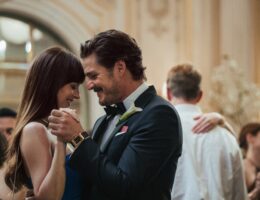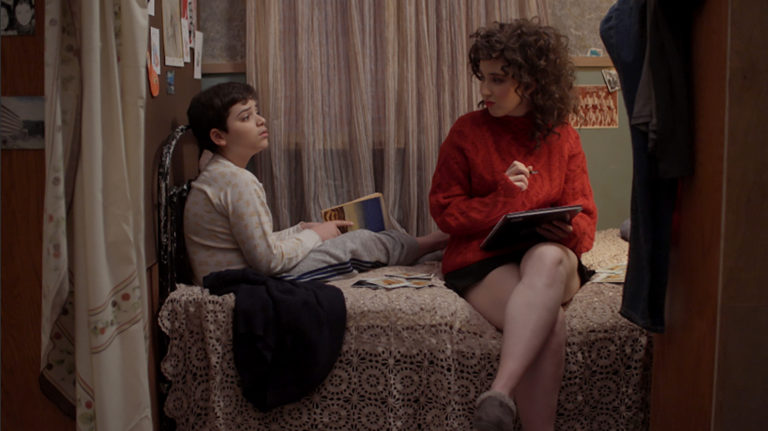Potato Dreams of America (2021 | USA | 96 minutes | Wes Hurley)
The Seattle film community got to show up “in Austin” in a big way for this year’s virtual SXSW, in the form of Wes Hurley’s autobiographical comedic feature, Potato Dreams of America.
A coming-of-age story, a period piece, and a deeply personal immigration tale all in one, the film follows Hurley’s avatar, a boy nicknamed “Potato”, and his mother, Lena, in their lives in 1980s-90s Russia and then through their emigration to Seattle in Potato’s teen years. Leaving behind all that they know, including an abusive ex and a doting grandmother (Lea DeLaria, best known as “Boo” from Orange is the New Black), Lena finds her ticket out of Russia as a mail-order bride for an awkwardly repressed man named John (Dan Lauria, the dad from The Wonder Years), while Potato is just beginning to come to terms with his homosexuality.
The film is an expansion on Hurley’s 2017 short film Little Potato, which won Best Documentary Short at that year’s SXSW and is now available to watch on Kanopy (free to all with a library card), as well as a VR piece named Potato Dreams. Although ostensibly two different types of film (documentary short vs narrative feature), the original short is a clear blueprint for the feature – it’s essentially Hurley and his mother, in talking head form, describing the plot of what would become the feature, which was also simply a description of their real life story. Several lines from the short are lifted directly into the feature.
The decision to make the Russian and American sections of the film two very distinct parts – complete with different composers on the score, and different actors playing Potato and Lena (in Russia everyone speaks English with no/American accents; in Seattle, Potato and Lena speak with Russian accents) – is an interesting one. Tone and visual aesthetics also shift over this location change, from arch and stylized to much more straightforward and earnest. Plenty of fanciful flourishes are also in play along the way, including a sexy Jesus Christ as a kind of personified imaginary friend, adding just a touch of magical realism to a story so rooted in Hurley’s actual reality that the end credits show real-life portraits of the people who were portrayed as characters in the film.
Many luminaries of the Seattle arts scene pop up both in cameo roles and in behind-the-camera credits: a sharp eye will notice comedian Emmett Montgomery as a priest and musician/filmmaker Clyde Petersen (of the band Your Heart Breaks and the film Torrey Pines) as a delivery man, not to mention Sophia Mitri Schloss (who played the title characters of Megan Griffiths’ Sadie and S.J. Chiro’s Lane 1974) as Potato’s American best friend, musical contributions by Alex Guy of the band Led to Sea, and many more.
While a few sections of the narrative felt a bit rushed, on the whole, Potato Dreams of America is a surprising, funny, and affecting piece – a worthy addition to the Seattle film canon and to autobiographical/queer/immigrant-centric narrative film in general.




